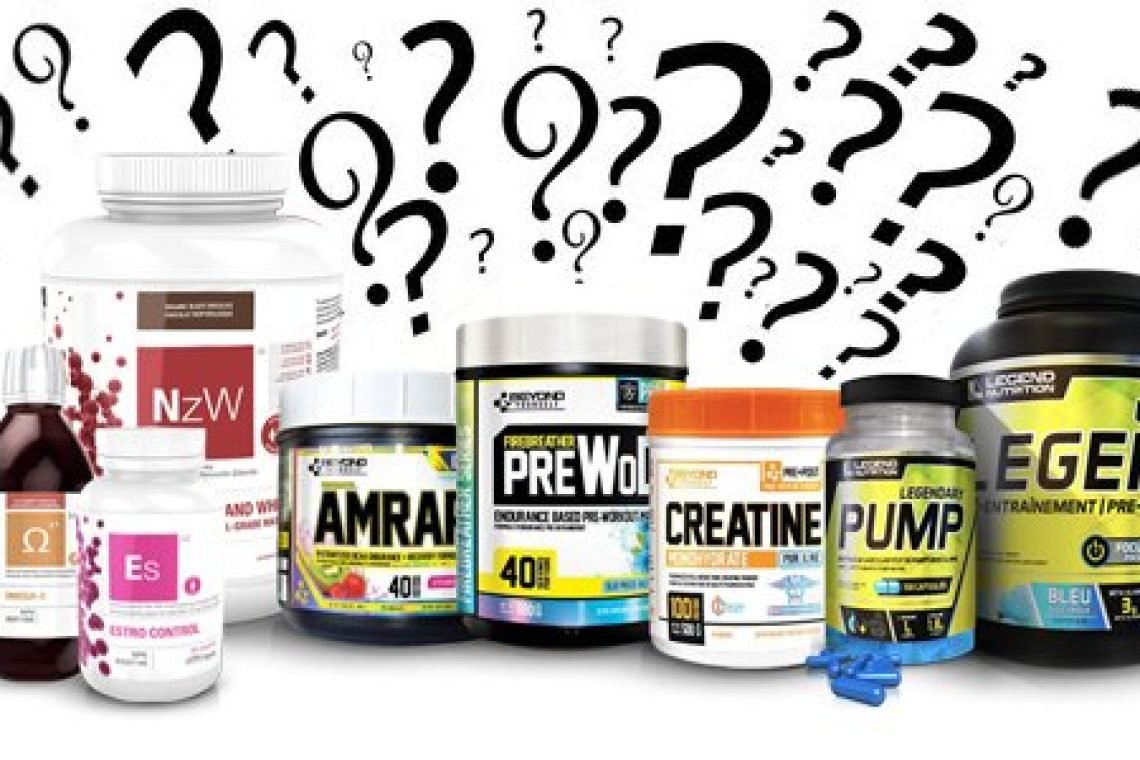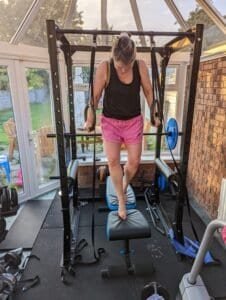Written with the help of Aoife Quinn, RD
Key Takeaways
- Most sports supplements on the market are overhyped and underperforming — but a few are genuinely backed by science.
- Creatine, whey protein, caffeine and beta-alanine have proven benefits for performance and recovery.
- Don’t overlook everyday staples like milk — they can be just as effective as fancy recovery drinks.
- Supplements should support a solid training and nutrition plan, not replace it. Aim to get the basics right (the 99%) and then supplements can be that cherry on top (the 1%)!
- For personalised advice, book a consultation with Aoife, an expert sports dietitian at Orla Walsh Nutrition.
Why Supplements? What Athletes Are Really Looking For
Whether you’re training for a marathon, smashing weights in the gym, or playing a weekend match, it’s tempting to reach for something that promises to make you better, faster, stronger. Sports supplements promise a lot: muscle growth, endurance, faster recovery, even mental focus.
But here’s the truth: while the shelves are stocked with everything from fizzy pre-workouts to glow-in-the-dark amino acid blends, only a handful of supplements are genuinely proven to do what they claim.
Let’s cut through the hype and dive into the ones that actually work, based on solid science — not marketing buzz.
Science-Backed Supplements That Actually Work
These are the sports aids with solid research behind them. They’re not magic pills, but when used correctly and paired with proper training and nutrition, they can give you that extra edge.
1. Creatine: Power, Speed, and Muscle Gains
Best for: Strength athletes, sprinters, high-intensity training
How it works:
Creatine is one of the most studied supplements in the world. It helps your muscles regenerate energy (ATP) during short bursts of intense effort, like lifting weights or sprinting.
Benefits:
- Increases strength and power output
- Helps with muscle growth when combined with resistance training
- Supports high-intensity training
Anything to watch out for?
Some people experience water retention, but it’s not harmful. Also, loading phases are optional — you can start with 3–5g per day and still see results over time.
Who isn’t a good candidate for Creatine?
If you have issues with your kidneys or liver disease, creatine may not be for you. Also, it is not recommended for pregnant women, if breastfeeding, those under 18-year-olds or individuals on PrEP.
2. Whey Protein: The Recovery King
Best for: Everyone – especially older people
How it works:
Whey is a complete, fast-digesting protein, rich in leucine that is derived from milk. It helps repair muscle tissue after exercise and supports muscle growth.
Benefits:
- Fast absorption post-training
- Convenient protein source
- Helps with muscle maintenance and growth
Top tips:
Whey isn’t essential if you’re getting enough protein from your diet — but it’s a handy, reliable way to top up if you’re active or pressed for time. Generally smaller people need 1 scoop and bigger people need 2.
Although whey is the gold standard for protein powders, if you can’t or choose not to have dairy or milk in your diet, the better plant-based alternatives include soya or pea-based protein powders.
3. Beta-Alanine: Fighting the Burn
Best for: High-intensity athletes (e.g. CrossFit, Sprints – swimming, cycling, track, rowing). Think 30 seconds to 10 minutes.
How it works:
Beta-alanine increases carnosine levels in muscles, which helps buffer acid buildup. This means less muscle fatigue and more reps or minutes before hitting the wall.
Benefits:
- Improves performance in short bursts of intense exercise
- Reduces fatigue in high-volume training
Fun fact:
It can cause a harmless tingling sensation (called paresthesia) — weird but not dangerous and tends to be gone within the hour. If this tingling bothers you, try spreading it out into 2-3 <2g doses over the day.
Interestingly, it might be more beneficial the less trained you are, but smaller improvements can mean more to the more trained athlete. Generally the dose is up to 6.4 grams per day.
4. Beetroot Juice: Nature’s Nitrate Shot
Best for: Endurance athletes – runners, cyclists, triathletes
How it works:
Beetroot juice is high in nitrates, which convert to nitric oxide in the body. This helps widen blood vessels and improve oxygen delivery to muscles.
Benefits:
- Enhances endurance
- Improves blood flow
- May reduce oxygen cost of exercise
When to take it:
2–3 hours before your session or race for best results. Take is AFTER you brush your teeth, and don’t use chewing gum once you’ve taken it as the mouth is involved in the magic. Look for concentrated shots if the full glass makes you feel a bit… earthy. There are other veg that we use for athletes when beetroot isn’t their thing. Oh, and expect pink coloured urine and poo! Sometimes this scares people as they think it’s blood.
5. Milk & Recovery Drinks: Simple but Powerful
Best for: Post-training recovery
How it works:
Milk contains both carbs, protein, water and electrolytes for recovery. It rehydrates, repairs muscle and replenishes glycogen — all in one glass.
Benefits:
- Excellent natural recovery drink
- Contains protein (whey + casein), carbs, electrolytes
- More accessible and affordable than commercial recovery products
- Offers a heap of other nutrients like calcium, phosphorus, iodine and B vitamins.
Pro tip:
Chocolate milk is a solid recovery option, especially after long sessions. It’s nice hot in winter when it’s cold out or served cold in summer. Another option is to turn your milk into a smoothie with the addition of fruits. This improves the carb content and offers fibre and a heap of vitamins – usually vitamin C and folate, which provides even more recovery benefits.
6. Caffeine: The Classic Performance Booster
Best for: Nearly all types of sport – from endurance running to weightlifting
How it works:
Caffeine stimulates the central nervous system, increasing alertness, reducing perceived effort, and delaying fatigue. It helps athletes go harder for longer, especially in endurance and high-intensity efforts. In short, it makes it feel easier!
Benefits:
- Boosts mental focus and reaction time
- Reduces perceived exertion
- Enhances endurance and sprint performance
- May improve strength and power output in some individuals
How much should you take?
The sweet spot is around 3–6 mg per kg of body weight, taken about 30–60 minutes before exercise. For a 70kg person, that’s roughly 200–400mg — equivalent to 2–3 strong cups of coffee. However, you can get it in supplement form if coffee bothers your stomach or if you want to be more precise about how much you’re taking.
Watch out for:
- Too much can cause jitters, anxiety, or sleep disruption (so best not to have it before an evening workout!)
- Your gut can be more sensitive to caffeine when you’re nervous, so watch out on race or competition days – you don’t want to be sprinting to the nearest loo!
- Some athletes are non-responders and may not notice much benefit
- Caffeine is also present in many pre-workout supplements, so check your total intake
Bonus tip:
Caffeine in gum or gel form is absorbed faster than coffee or capsules — handy for events like races.
7. Sodium Bicarbonate: Buffering Fatigue for High-Intensity Training
Best for: Sprinting (e.g. up to 1500m track, 400m swinning, 4km cycling), CrossFit, combat sports, repeated high-intensity efforts. Think sports lasting 30 seconds to 10 minutes.
How it works:
Sodium bicarbonate (yep, baking soda, the stuff in your house!) helps buffer acid (hydrogen ions) in the blood that builds up during intense exercise. So by consuming bicarbonate, it increases the bicarbonate in the blood, making the pH of the blood compared to the muscle greater, which makes the hydrogen ions leave the muscle to go into the blood. So, in other words, taking bicarb makes the blood more alkaline which in turn makes the muscle less acidic. This reduces the muscle “burn” and allows you to push harder for longer during short bursts of maximal effort. It may also help with muscle fatigue. Remember, beta alanine works differently in that it increases carnosine which acts as a buffer inside the muscle. So, they work in different ways but have the same sort of goal.
Benefits:
- Improves performance, as per a review of 158 studies. As long as the exercise was above 30 seconds in length.
- As endurance athletes needs to increase their intensity at times while racing, it acan also help in sports lasting longer than 10 minutes. e.g. 10,000m or even team sports.
- Delays muscle fatigue caused by acid build-up
- May benefit competitive sports like rowing, boxing, and swimming
How to take it:
The standard dose is around 0.2–0.3g per kg of body weight, taken 1 to 3 hours before exercise. For a 70kg athlete, that’s roughly 14–21g — but timing and tolerance are key. 21g is a lot of take in a drink! It would be hard to drink it, and keep it down.
Watch out for:
- High doses can cause bloating, nausea or diarrhoea
- Best to trial it during training, not on race day!
- A split dosing strategy or using a capsule form can reduce gut issues
Pro tip:
Start low and slow. Test your tolerance in training before using it for competition. Some athletes find that taking it with their carbs helps (e.g. add it to a pancake?!) or taking is in capsule form. I’ve seen very few athletes manage to use this supplement because of taste and tolerance.
Supplements That Might Work (But Need More Context)
Not every supplement has slam-dunk scientific backing — but that doesn’t mean they’re completely useless. Some show promise in specific contexts or for certain individuals, but they’re not essential for most active people. Let’s take a closer look.
8. Citrulline & Arginine: The Blood Flow Duo
Best for: Weightlifters, bodybuilders, HIIT fans
How they work:
Both citrulline and arginine are amino acids involved in nitric oxide production, which helps dilate blood vessels and increase blood flow to muscles. The idea is more blood = more oxygen and nutrients = better performance.
What the science says about how it potentially works:
- It may improve blood flow, a bit like beetroot juice (more relevant for longer exercise)
- It may improve energy production if taken as citrulline malate and reduce lactic acid (less relevant for longer exercise).
- May help with the build up of ammonia which can lead to fatigue.
- It has been shown to be beneficial with regards to muscle soreness, and the research does generally look more favourable for exercise that involves shorter bursts.
Reality check:
A review of the research happened in 2023 and the conclusion was that it didn’t improve performance. Any noticeable boost could simply come from the caffeine found in many pre-workout mixes they’re often bundled with. However, we do need studies with more people, and there are lots of different protocols (take it chronically v acutely) and we haven’t really tested it in women to the same degree as men.
9. Pre-Workout Supplements: The Energy Rollercoaster
Best for: Those needing a mental and physical pick-me-up before training
What’s inside?
Most pre-workouts are a cocktail of caffeine, beta-alanine, citrulline, creatine, and sometimes more questionable ingredients you need a chemistry degree to pronounce.
Possible benefits:
- Increased alertness and motivation (thanks mostly to caffeine)
- Slight endurance and strength boost
- Enhanced focus (sometimes)
But here’s the catch:
- Huge variability between brands
- Overstimulation, tingling, headaches, crashes
- Some products are under-regulated or contain banned substances
Should you use them?
If you’re using pre-workouts just for the caffeine hit, a strong coffee might do the trick — minus the price tag and sketchy ingredients. But if you do go the supplement route, look for third-party tested options and avoid mega-doses of stimulants.
Table: How Common Supplements Stack Up
| Supplement | Primary Benefit | Backed by Science? | Best For | Caution Notes |
|---|---|---|---|---|
| Creatine | Power & strength | ✅ Strong evidence | Sprinters, lifters, HIIT athletes | Water retention, not for kidney issues |
| Whey Protein | Muscle repair | ✅ Strong evidence | Everyone needing protein post-workout | Check for lactose intolerance |
| Beta-Alanine | Delays fatigue | ✅ Good evidence | High-intensity sports | Tingling side effects |
| Beetroot Juice | Endurance & oxygen use | ✅ Good evidence | Runners, cyclists, team sports | Taste may not suit everyone |
| Milk | Recovery & hydration | ✅ Strong evidence | Post-workout for all | Look for lactose-free if needed |
| Caffeine | Energy & endurance | ✅ Strong evidence | Endurance, team sports, gym goers | Jitters, sleep disruption |
| Sodium Bicarbonate | Buffers acid, sprint gains | ✅ Good evidence | Repeated sprints, combat sports, rowing | Gut distress, trial before event |
| Citrulline | Blood flow, pump | ⚠️ Mixed evidence | Weight training, bodybuilding | Small benefits; choose wisely |
| Arginine | Nitric oxide support | ⚠️ Mixed evidence | Advanced users seeking pump effects | Poor absorption |
| Pre-Workouts | Energy & focus | ⚠️ Variable | Tired trainers, caffeine lovers | Can be overhyped and underregulated |
Marketing vs. Reality: Don’t Fall for the Hype
Supplement marketing is a well-oiled machine. Buzzwords like “clinically proven”, “muscle-building formula”, and “explosive energy” are everywhere. But here’s the thing — a flashy label (or influencer endorsement) doesn’t equal effectiveness.
Top myths to avoid:
- “Natural” means safe – Not always. Even natural ingredients can interact with medications or cause side effects.
- More is better – Mega-dosing rarely helps and can be harmful (especially with stimulants).
- One-size-fits-all – Your supplement needs depend on your training, diet, health, and goals.
Why Personal Advice Matters: Book a Session with Aoife
There’s no “perfect stack” that works for everyone — and the wrong supplement can be a waste of time, money, or worse, counterproductive. That’s why talking to a registered sports dietitian like Aoife can make all the difference.
At Orla Walsh Nutrition, Aoife helps athletes of all levels:
- Understand which supplements match their goals
- Avoid unnecessary or risky products
- Create nutrition plans that support both performance and long-term health
Whether you’re training for your first 10K or prepping for a big competition, Aoife can give you science-backed, personalised advice that actually works.
👉 Book an appointment with Aoife today at Orla Walsh Nutrition and get expert guidance tailored to your sport, training schedule, and nutrition habits.
Food First, Supplements Second: The Golden Rule
Here’s the hard truth: no supplement will fix a poor diet or make up for inconsistent training.
Supplements are exactly what the name suggests — a supplement to a well-balanced, whole-food diet. Even the most effective sports aids (creatine, whey, caffeine, etc.) work best when the foundations are already solid.
Real food wins because:
- It offers a broad spectrum of nutrients you can’t find in isolated powders
- It’s more affordable in the long run
- It’s easier to stick with over time (and tastes better too!)
Think of supplements as the cherry on top — not the base of your nutrition strategy.
Conclusion: Supplements With Substance, Not Snake Oil
There’s no shortage of sports supplements promising superhuman gains. But the reality is, only a handful are backed by solid science, and even then, results vary from person to person.
The good news? You don’t have to figure it out alone.
If you’re looking to:
- Improve performance safely
- Enhance recovery
- Make sense of conflicting supplement advice
Then it’s time to chat with Aoife, a registered dietitian with real-world sports nutrition experience.
💬 Book your consultation with Aoife today at Orla Walsh Nutrition and get practical, personalised advice on what actually works — no gimmicks, no guesswork, just real results.
Frequently Asked Questions (FAQs)
1. Do sports supplements really work?
Yes — but only some. Creatine, whey protein, beta-alanine, and caffeine are among the few with strong scientific backing. Most others offer minimal or inconsistent benefits, especially when used without expert guidance.
2. Is creatine safe for athletes?
Creatine is one of the most researched supplements and is safe for most people. It supports short bursts of intense activity and muscle gain. However, those with kidney issues should seek medical advice before using it.
3. What’s the best protein supplement for recovery?
Whey protein is fast-digesting and ideal post-workout. It supports muscle repair and is convenient. However, many people can meet their needs through food — and milk is an excellent natural alternative.
4. Can beetroot juice improve running performance?
Yes, beetroot juice is rich in nitrates that help improve blood flow and oxygen efficiency. Studies show it can enhance endurance, especially in aerobic sports like running and cycling.
5. Are pre-workout supplements bad for you?
Not necessarily — but they differ so much. Some are effective, mainly due to caffeine, but others may cause side effects like jitters or crashes. It’s best to use them cautiously and choose tested brands.
6. How does beta-alanine help with fitness?
Beta-alanine increases carnosine in muscles, which helps buffer acid build-up. This delays fatigue and improves performance during high-intensity workouts. It’s particularly useful in sports like CrossFit or sprinting.
7. What’s the difference between citrulline and arginine?
Both aim to boost nitric oxide for better blood flow, but citrulline is better absorbed and more effective. The benefits are modest and best suited to specific training types although popular among bodybuilding or intense gym work.
8. Is milk as effective as recovery drinks?
Surprisingly, yes! Milk offers protein, carbs, electrolytes, and hydration — all vital for recovery. Chocolate milk, in particular, has been shown to rival commercial sports drinks for post-exercise recovery.
9. Should I take supplements every day?
Not always. The need for daily supplementation depends on your diet, activity level, and specific goals. Some, like creatine or protein, may be used daily. Others, like pre-workouts, should be used selectively.
N.B. Don’t try anything new, including supplements, on the day of a race, match or competition – always try things out on training days first!
10. Where can I get professional supplement advice in Ireland?
The best way is to speak with a registered dietitian like Aoife at Orla Walsh Nutrition. She can assess your needs and help create a tailored plan that includes safe, effective supplements (if needed) based on your sport and lifestyle.
11. How does caffeine help with sports performance?
Caffeine is one of the most proven performance-enhancers. It stimulates your central nervous system, helping reduce fatigue, improve focus, and increase endurance. Most effective at 3–6 mg per kg of body weight, it’s widely used in both endurance and high-intensity sports. However, sensitivity varies — and too much can lead to jitters, anxiety, or poor sleep, so it’s important to time and dose it properly.
12. What does sodium bicarbonate do for sports performance?
Sodium bicarbonate helps buffer acid in the blood during high-intensity exercise. This can delay fatigue and improve performance, particularly in activities involving repeated sprints or short bursts of effort — such as CrossFit, boxing, or rowing. The main drawback? It can upset your stomach, so it’s crucial to test it in training before using it in competition.











